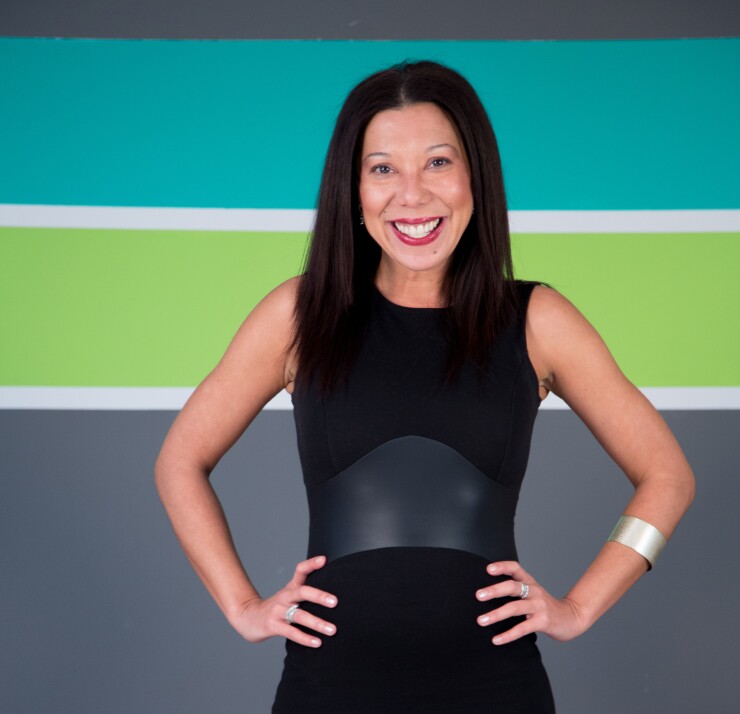After more than a week of national unrest over racial injustice and inequities, a Boston bank convened a panel of civil rights leaders to brainstorm ways banks can foster economic opportunity.
The discussion, organized by Berkshire Bank, centered on how banks in combination with other private-sector and public-sector players can close the gap in wealth between the black and white communities. Lenders were urged to focus on providing greater access to capital for minority business owners and helping them weather the coronavirus pandemic.
“When we looked at the wealth gap, we found a couple ways families get on that ladder: home equity, homeownership and business ownership,” said Malia Lazu, Berkshire’s chief culture and experience officer. “How do we grow capital in order to support minority businesses, in order to think about homeownership? One leads to the other.”
As if on cue, U.S. Bancorp in Minneapolis — the epicenter of nationwide demonstrations that in some instances turned violent — on Friday

For banks, the resurgent national conversation over race is a time of reckoning.The pandemic has amplified underlying racial and economic inequalities in the U.S. And the past week has been marked by widespread protests — sparked by the deaths of
Bankers have begun to speak out on their industry’s role in perpetuating systemic racism and inequality. JPMorgan Chase CEO Jamie Dimon recently said that the virus
The wealth gap between white and African American households in the United States means that black people have vastly fewer resources to call upon when trying to start a business. To help solve that problem, the $13.2 billion-asset Berkshire worked with the nonprofit Runway Project to launch a Friends and Family loan pilot program to help jump-start minority entrepreneurship.
The new loan program was just one topic of discussion on Thursday at a virtual town hall event hosted by the bank. Lazu initially organized the panels — “Reimagining the Black Economy” on Thursday and “Reimagining the Latinx Economy” on Friday — out of a concern for the fate of minority-owned small businesses in a post-COVID-19 world.
“When COVID hit, I knew that a nationwide Katrina-type catastrophe was about to happen to poor people, to black people, to brown people,” Lazu told American Banker before the panel discussion. “We needed to start levying dams so we can at least have something to salvage.”
Thursday’s panel discussion featured Derrick Johnson, president and CEO of the NAACP; Courtland Cox, a former civil rights activist and now president of CCAP Consulting; and Joy Reid, the host of "AM Joy" on MSNBC.
U.S. Rep. Ayanna Pressley, a Democrat from Massachusetts, was originally slated to join the discussion but had to miss it to attend a memorial for Floyd. In a prerecorded video message, Pressley discussed a bill she introduced Wednesday along with Sen. Maxine Waters, Democrat of California and chairwoman of the House Financial Services Committee.
The Saving Our Streets Act is meant to address the issue of the inability of minority-owned businesses, many of them microbusinesses, to get equal access to Paycheck Protection Program loans. It would establish a grant fund for businesses with less than 10 employees, with three-quarters of the funds reserved for historically underrepresented businesses.
Pressley pointed out that black Americans have long been shut out of government help and intervention, one prominent example being the GI Bill of 1944.
The timing of Thursday’s discussion had an added significance in that it shortly followed the 99th anniversary of
Often described as the worst single instance of racial violence in American history, the 1921 riots left 10,000 African Americans homeless. The
The panelists also discussed the connection between political and economic power. Cox noted that African American middle-class communities were better able to thrive once they started electing black mayors.
“If you have the political might, you also have the economic power,” Cox said. “We need to understand that politics is really an expression of economic interest.”
Lazu, a
The Friends and Family program, which launched in February, is still in its pilot stage, and Berkshire has so far made just one loan through it. The nonprofit Runway Project finds the entrepreneurs and applies a character-based underwriting rubric before bringing them to the bank. The bank, in turn, offers its customers a specialty certificate of deposit product in order to fund the loans it will make to those small businesses.
Berkshire was also set to launch a free co-working space in the majority black neighborhood of Roxbury in Boston when the pandemic struck, Lazu said.





